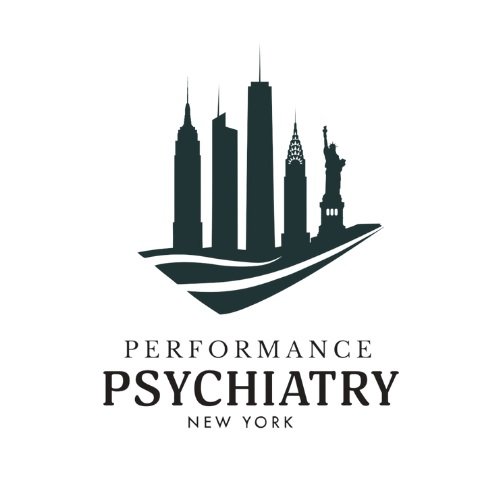What You Should Know About Over-the-Counter Sleep Aids and Their Safety
Struggling with sleepless nights can be frustrating and exhausting, leading many people to seek quick solutions in the form of over-the-counter (OTC) sleep aids. These medications, available without a prescription, are designed to help you fall asleep more easily. But how safe are they, and are they the right solution for your sleep troubles? In this post, we’ll explore the different types of OTC sleep aids, their safety, and what you should consider before using them.
Understanding Over-the-Counter Sleep Aids
Over-the-counter sleep aids are medications that you can buy without a prescription to help you sleep. They typically contain ingredients that induce drowsiness and promote sleep. The most common types of OTC sleep aids include:
Antihistamines:
Diphenhydramine (found in products like Benadryl and Unisom)
Doxylamine (found in products like Unisom SleepTabs)
These are antihistamines primarily used to treat allergies, but they also have sedative effects that can make you feel sleepy.
Melatonin:
Melatonin is a hormone naturally produced by your body that helps regulate your sleep-wake cycle. Melatonin supplements are often used to help with sleep onset, particularly in cases of jet lag or shift work.
Herbal Remedies:
Some OTC sleep aids contain herbal ingredients like valerian root, chamomile, or lavender, which are believed to have calming or sleep-inducing properties.
Are Over-the-Counter Sleep Aids Safe?
While OTC sleep aids can be helpful for occasional sleeplessness, they’re not without risks. It’s important to understand the potential side effects and safety concerns associated with these medications:
Potential Side Effects
Antihistamines: Common side effects of antihistamine-based sleep aids include dry mouth, dizziness, constipation, urinary retention, and blurred vision. These side effects can be more pronounced in older adults.
Melatonin: While melatonin is generally considered safe for short-term use, it can cause side effects such as headache, dizziness, nausea, and daytime sleepiness. It may also interact with certain medications, so it’s important to talk to your doctor before using it.
Herbal Remedies: The safety and efficacy of herbal remedies can vary widely. Some people may experience allergic reactions or gastrointestinal upset, and the quality and potency of herbal products are not always consistent.
Risk of Dependence
While OTC sleep aids are not as addictive as some prescription medications, there is still a risk of developing psychological dependence. If you start relying on sleep aids to fall asleep every night, it can become difficult to sleep without them.
Next-Day Drowsiness
One of the most common side effects of OTC sleep aids is next-day drowsiness or a "hangover" effect. This can impair your ability to perform daily activities, such as driving or working, and can be particularly dangerous if you need to be alert.
Masking Underlying Issues
OTC sleep aids can help you fall asleep, but they don’t address the underlying causes of your sleep problems. Chronic insomnia or frequent sleep disturbances may be a sign of an underlying medical or psychological issue that needs to be addressed with the help of a healthcare professional.
When to Use Over-the-Counter Sleep Aids
OTC sleep aids can be useful for short-term situations where you need help falling asleep, such as during periods of stress, travel-related jet lag, or an occasional restless night. However, they should not be used as a long-term solution for sleep problems. Here are some guidelines for using OTC sleep aids safely:
Use Sparingly: OTC sleep aids are best used occasionally and for short periods of time. Prolonged use can lead to tolerance (where the medication becomes less effective) and dependence.
Follow the Dosage Instructions: Always follow the recommended dosage on the label. Taking more than the recommended amount can increase the risk of side effects and may not improve your sleep quality.
Consider the Timing: Take the sleep aid only when you have enough time to sleep (usually 7-8 hours). Taking it too late at night or early in the morning can increase the risk of next-day drowsiness.
Consult with Your Doctor: If you’re considering using an OTC sleep aid, especially if you have any underlying health conditions or are taking other medications, it’s important to talk to your doctor first. They can help you determine if it’s safe and appropriate for your situation.
Alternatives to Over-the-Counter Sleep Aids
Before reaching for an OTC sleep aid, consider trying some non-medication strategies to improve your sleep:
Establish a Sleep Routine: Go to bed and wake up at the same time every day, even on weekends. A consistent sleep schedule helps regulate your body’s internal clock.
Create a Relaxing Bedtime Ritual: Engage in calming activities before bed, such as reading, taking a warm bath, or practicing relaxation exercises.
Limit Screen Time: Reduce exposure to screens (phones, tablets, TVs) at least an hour before bed, as the blue light can interfere with melatonin production and make it harder to fall asleep.
Improve Your Sleep Environment: Make your bedroom conducive to sleep by keeping it cool, dark, and quiet. Consider using earplugs, an eye mask, or a white noise machine if necessary.
Watch Your Diet and Exercise: Avoid heavy meals, caffeine, and alcohol close to bedtime. Regular physical activity can also promote better sleep, but try to exercise earlier in the day.
Conclusion: Use with Caution
Over-the-counter sleep aids can be a helpful tool for occasional sleep difficulties, but they are not a one-size-fits-all solution. It’s important to be aware of the potential risks and side effects, and to use them sparingly. If you’re struggling with ongoing sleep issues, it’s best to seek guidance from a healthcare professional who can help you address the root cause of your insomnia and develop a safe and effective treatment plan.
Remember, good sleep hygiene and lifestyle changes are often the most effective and sustainable ways to improve your sleep quality and overall well-being.

